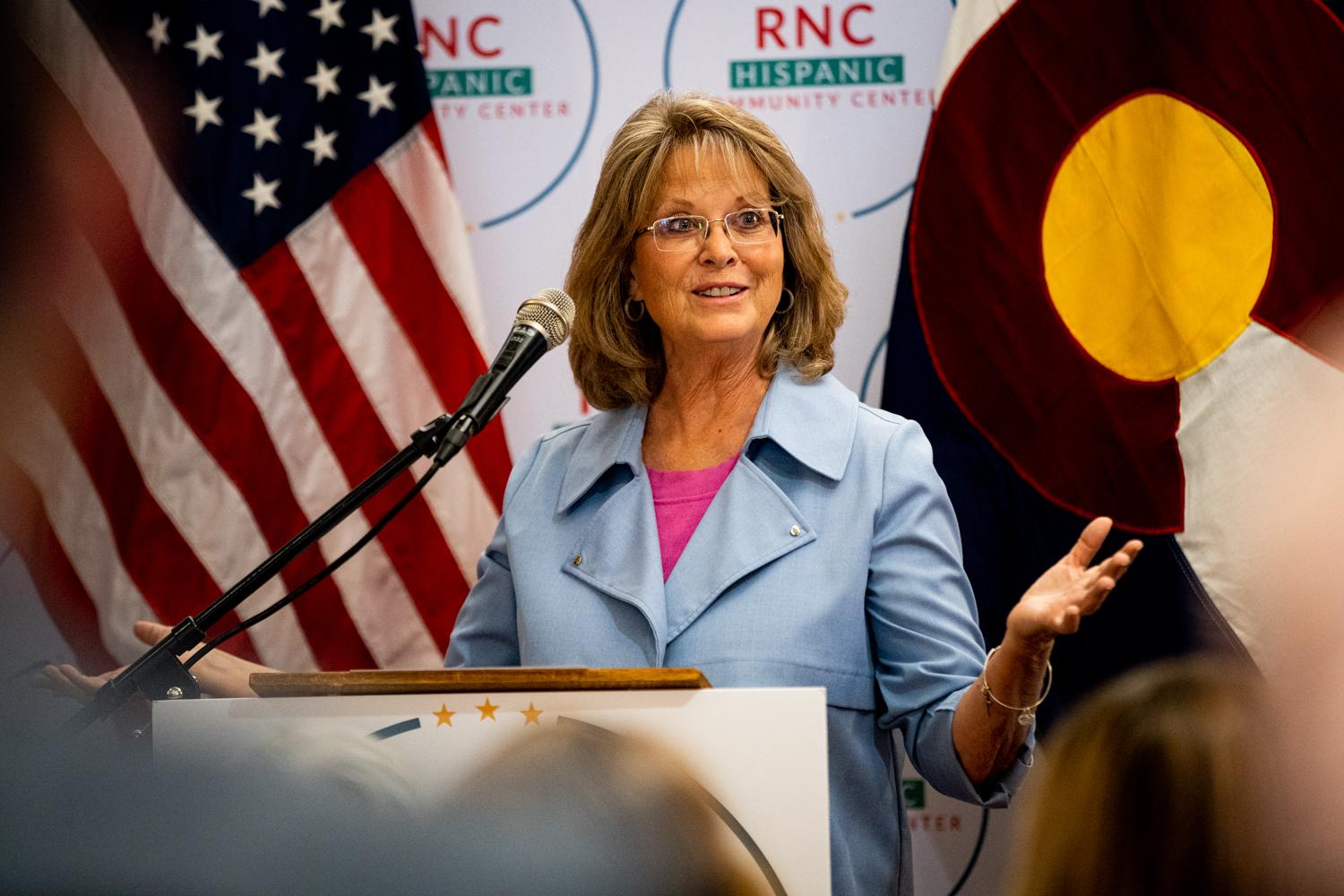
Barbara Kirkmeyer, candidate for U.S. House
In 2022, Barbara Kirkmeyer is running for Congress in Colorado’s new 8th Congressional District.

Yadira Caraveo, candidate for U.S. House
In 2022, Dr. Yadira Caraveo is running for Congress in Colorado’s new 8th Congressional District.

Michael Bennet, candidate for U.S. Senate
In 2022, Michael Bennet is running for reelection to the U.S. Senate. The Democrat has held the office since 2009. He was previously superintendent of Denver Public Schools.
For more information to help you decide on ballot measures and big races, find the complete 2022 voter guide at cpr.org.

Joe O’Dea, candidate for U.S. Senate
In 2022, Joe O’Dea is the Republican nominee for U.S. Senate. He owns a construction company called Concrete Express. He is running for office for the first time.
For more information to help you decide on ballot measures and big races, find the complete 2022 voter guide at cpr.org.

A county clerk on efforts to ensure election security as denialism abounds
Colorado is widely recognized as having safe, vote-by-mail elections, yet it’s also a hotbed of election fraud conspiracies. That makes the job of county clerks here both fulfilling and exhausting. In conservative El Paso County, election denialism abounds. And, it’s up to the Republican clerk to debunk it. For that work, Chuck Broerman has received the “Guardian of Democracy” award.

In Colorado Senate race, Michael Bennet still fights for child tax credit and immigration reform
The incumbent Democrat is running against Republican businessman Joe O’Dea.

In Colorado Senate race, Joe O’Dea criticizes his opponent and the Democrats over inflation, crime and Space Command
The Republican businessman is running to unseat Democratic incumbent Michael Bennet.

Sept. 30, 2022: Michael Bennet and Joe O’Dea make their case for the U.S. Senate
Colorado’s race for the U.S. Senate could help decide which party gains control in a split chamber. Incumbent Democrat Michael Bennet talks about his work on issues like the child tax credit and immigration. Then, Republican challenger Joe O’Dea talks about addressing inflation and crime.

Democrat Yadira Caraveo makes her case to represent Colorado’s 8th District
The state representative says affordable housing and unsustainable costs of living are what made her want to get into politics in the first place.
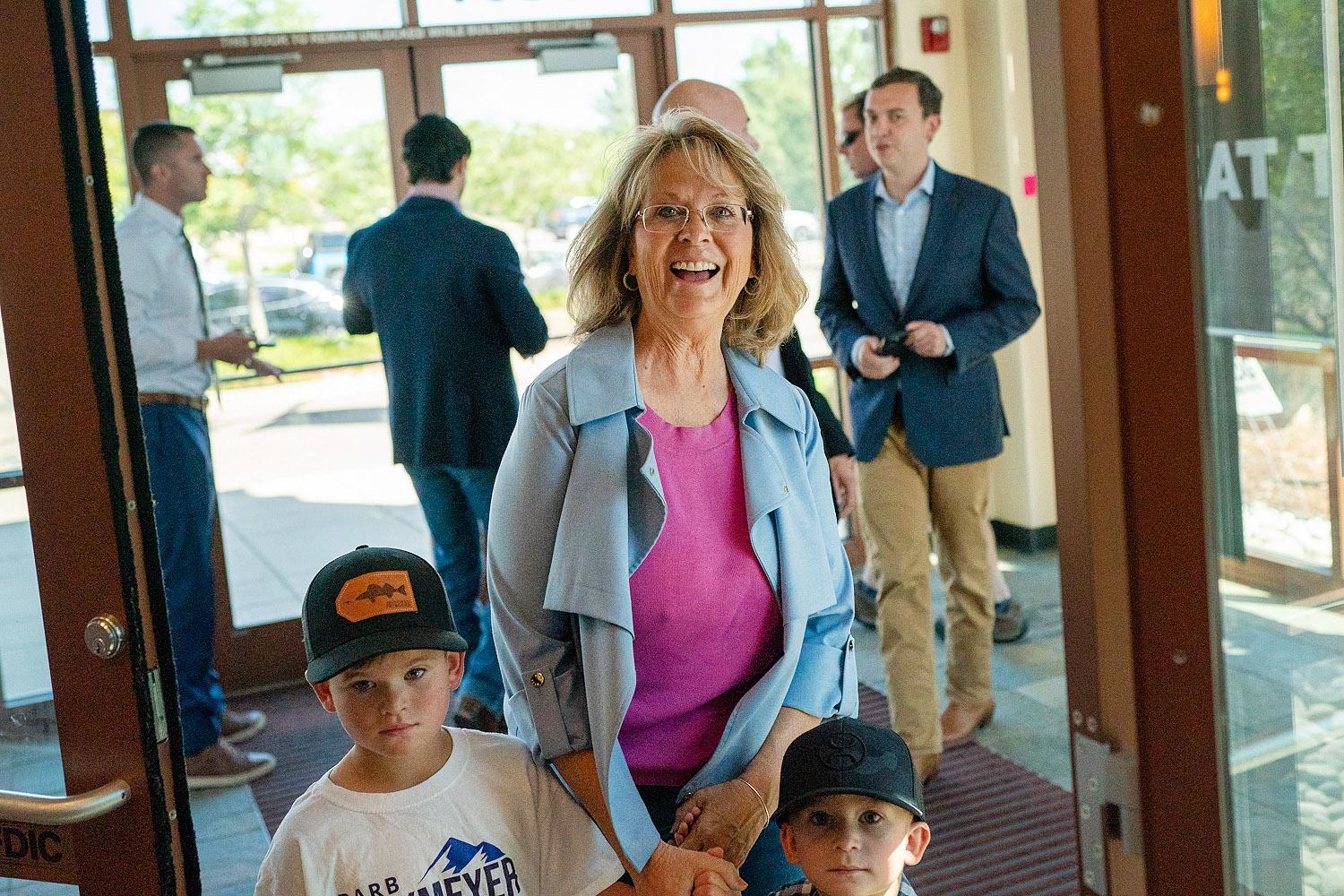
Republican Barbara Kirkmeyer makes her case to represent Colorado’s newest and most competitive congressional district
District 8 includes Weld, Adams and Larimer counties and is considered one of the most competitive districts in this year’s midterm elections.

CMU’s new athletic director has a mind focused on equity
Kimberly Miller is Colorado Mesa University’s first Black woman athletic director. The North Carolina native started her new job just before the fall semester started, and she’s been getting acclimated. Her goal is to make sure there’s equity for everyone in all areas of sport at CMU.
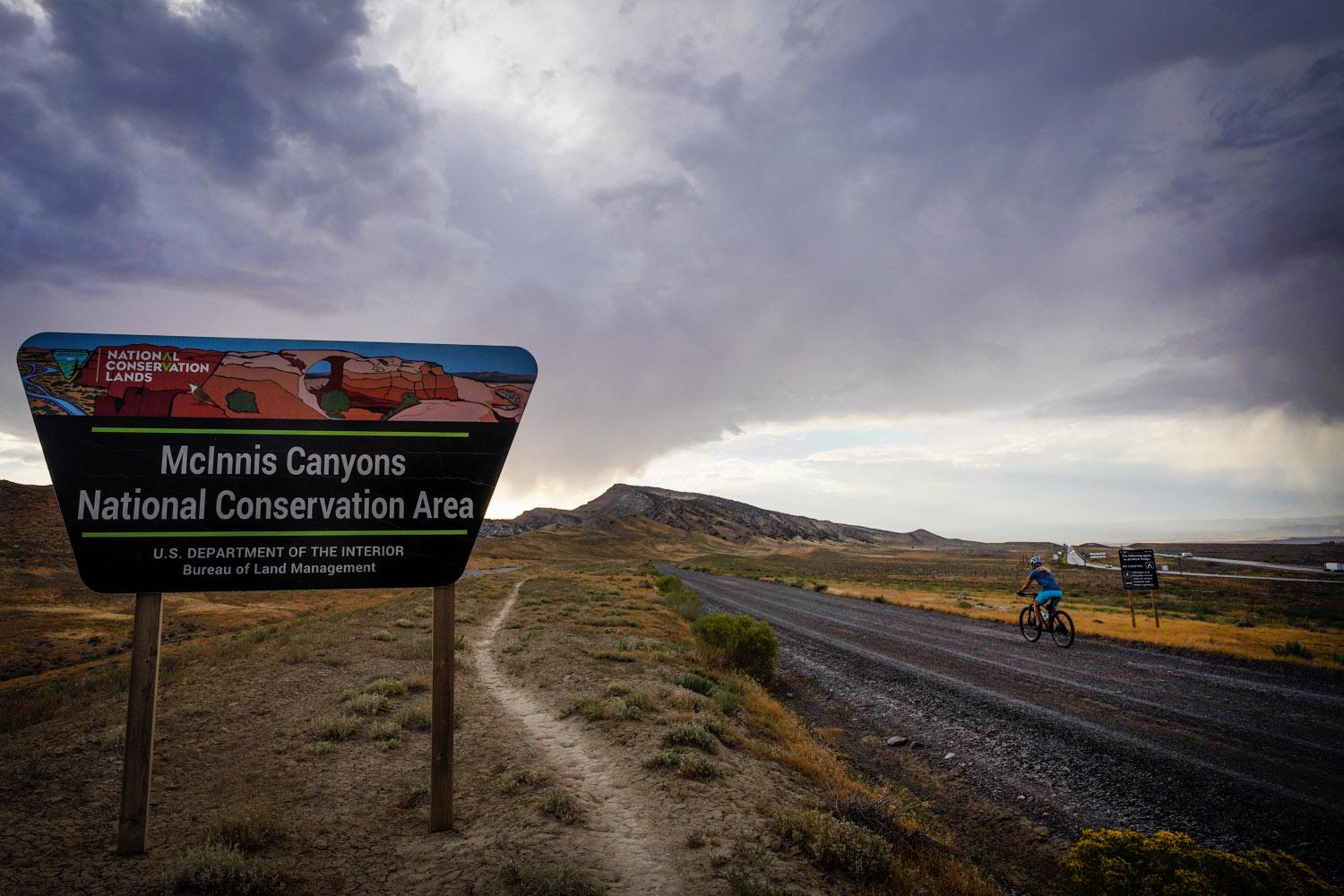
Erasing barriers for getting students outdoors
Fruita resident Gabriel Otero is a senior campaign specialist with The Wilderness Society. He and his organization were instrumental in establishing a statewide equity grant program that helps kids from underserved communities experience nature and the outdoors. In an interview with Colorado Matters, he explains the different barriers children of color face when it comes to experiencing the outdoors, and he also demonstrates the difference equity programs can make in students’ lives.

Club 20 debates kick off campaign season on the Western Slope
The Club 20 debates traditionally draw politicians from all over the state to address issues specific to the Western Slope. Candidates running for office will discuss water, health care and education. But while many politically inclined in the region will be watching, some Democratic politicians are skipping the tradition altogether. Grand Junction Sentinel reporter Charles Ashby and political science professor Justin Gollob talk about the political climate on the Western Slope ahead of the debates.

Mesa County Clerk Tina Peters pleads not guilty in election security breach case
She appeared in court Wednesday for her arraignment.

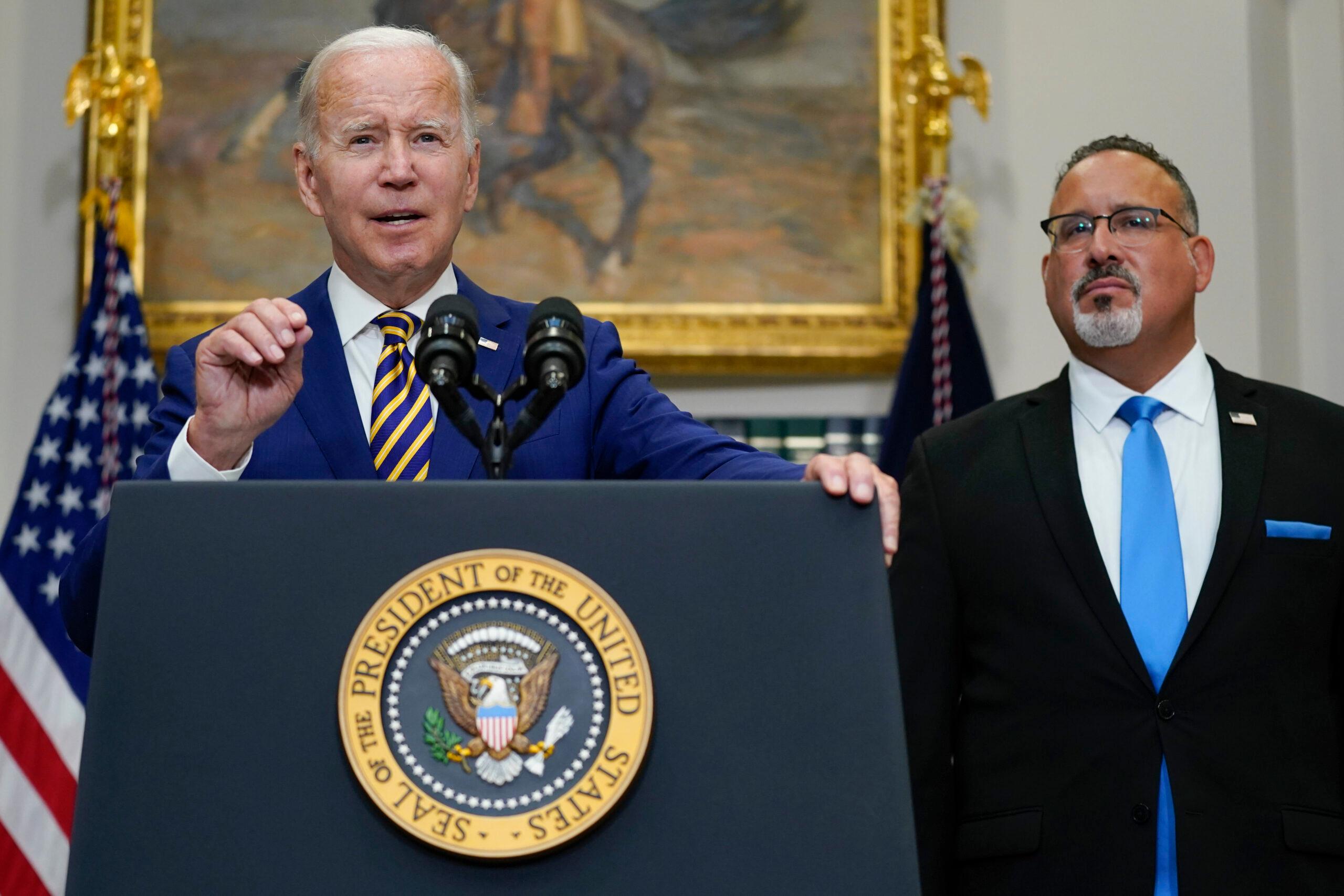
Biden’s student loan forgiveness plan could affect 700,000 Coloradans
The Biden Administration announced a plan to forgive $10,000 of federal student loans for borrowers making less than $125,000 a year and $20,000 for students who received Pell Grants. This could affect more than 700,000 borrowers in the state, where the average debt load is $36,000. However, the degree of impact will vary for borrowers of color. Jason Gonzales wrote about this for Chalkbeat Colorado and spoke with Colorado Matters about it.
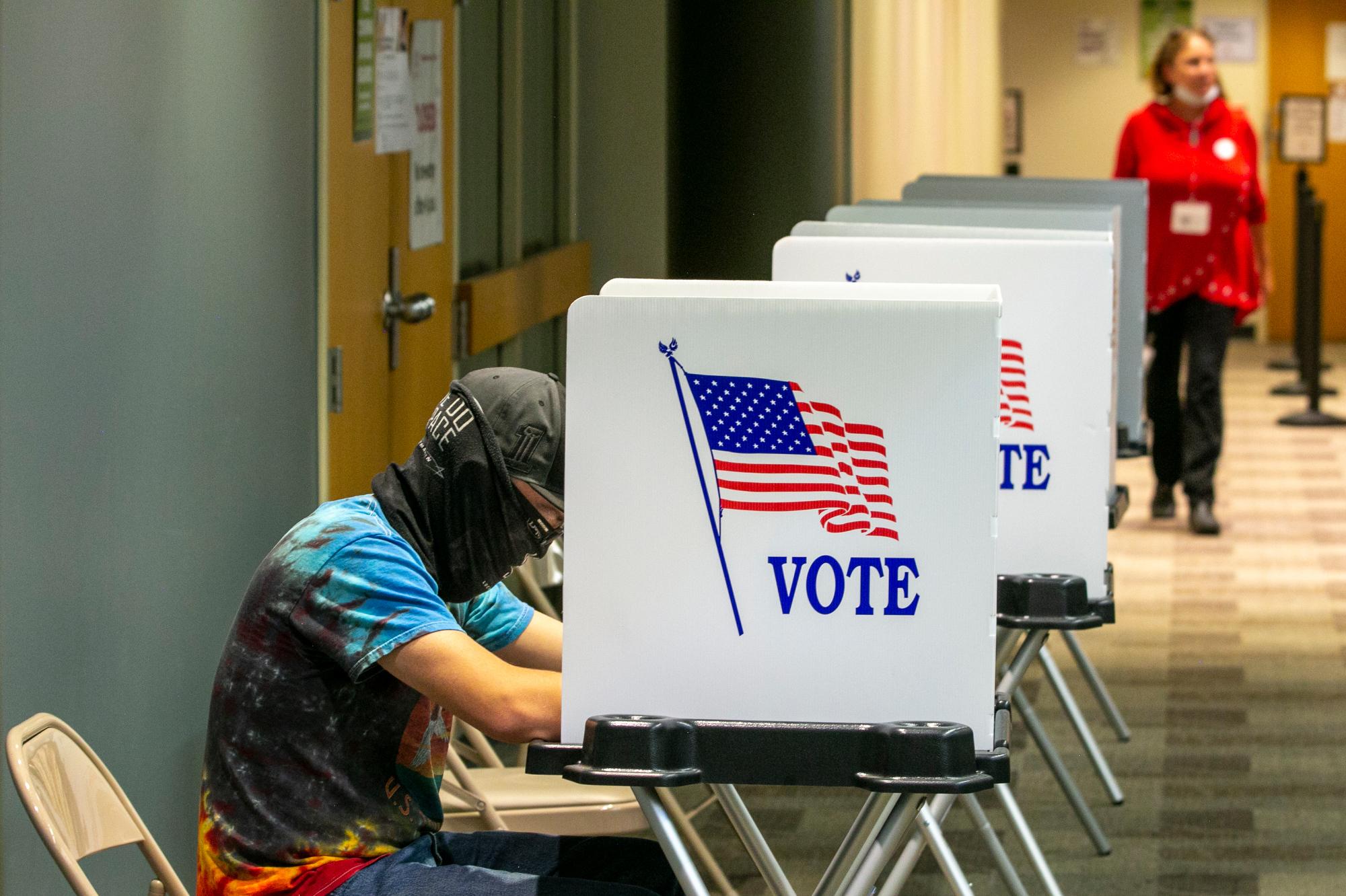
A new CU Boulder study looks at age and politics
Damon Roberts, a political science doctoral student, led a study looking at how the age of politicians affects the voters’ views on job performance and how likely they were to vote for them. The study found that the older the politician is, the higher their job disapproval rating would be. However, age did not factor in whether someone would vote for them in the first place. Roberts discusses these findings and possible reasons for the disconnect.

